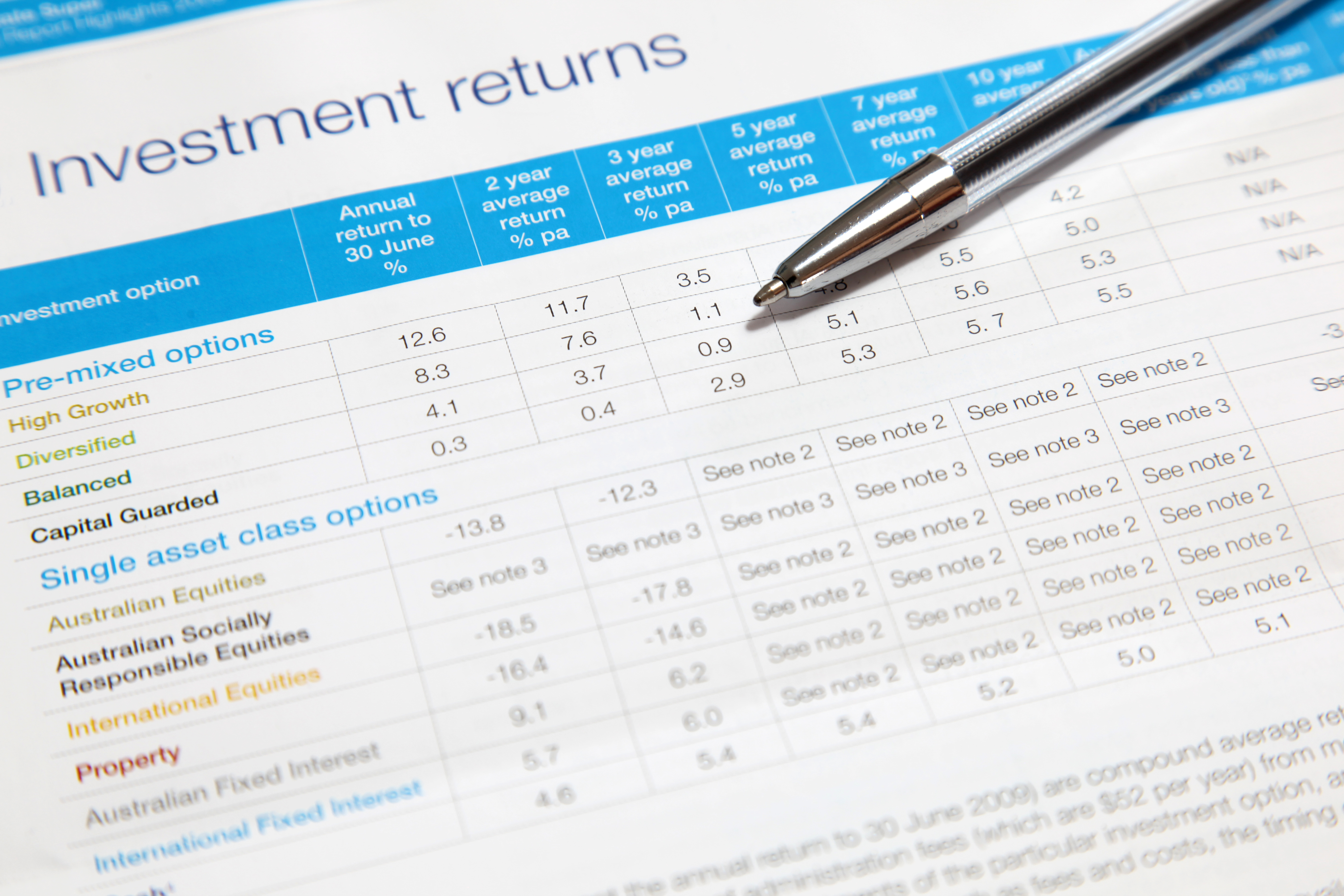Superannuation As a Small Business Owner: Everything You Need To Know
If you’re looking at starting a small business, or are already running one, there is so much to think about. When you have staff working for you, you are adding even more to your plate. You have to find a system for payroll, as well as figuring out the processes around superannuation so that you and your employees can be prepared to retire.
In Australia, our retirement income is funded in many ways. Most of us will end up using some of our savings and the Age Pension, as well as superannuation.
Find out everything you need to know about Super as a small business owner:
So, what is superannuation (super)?
Super is your retirement savings that are built up over your working life, and is a compulsory system created by the Australian government to reduce people’s reliance on the Age Pension. It is made up primarily from contributions your employer pays (which is usually a percentage of your salary), as well as any personal contributions you make.. You may even get some contributions from the government, depending on your income level.
While you are still working, your super savings will be invested in order to grow so that you can live more comfortably when you retire. Once you retire, your super will available to withdraw to use any way that you need it.
While you may not be thinking about your future now, it is important that you do because of the potential benefits. The more money that you (and your employer) put into your super, the better off you will be once you retire. Also, the longer that you have super savings invested, the more money you will accumulate due to the investment earnings allocated by your super fund.
If you’re self-employed with no staff working for you, these tips could help you make the most of your retirement savings, and you might even consider the benefits of hiring freelancers to help when you need.
On the other hand, as a small business owner with staff, you need to know exactly how much your employees are making so that you can contribute the right amount to their superannuation fund. If you are not careful and diligent about it, you could be penalised.
How much super do I need to pay my employees?
 As a business owner, you are required to contribute a certain amount of super for each of your eligible employees. This is called the superannuation guarantee (SG), and it is currently 9.5 percent of their ordinary time earnings.
As a business owner, you are required to contribute a certain amount of super for each of your eligible employees. This is called the superannuation guarantee (SG), and it is currently 9.5 percent of their ordinary time earnings.
It is important that you calculate this correctly or you can be subjected to fines. Make sure that you include any over-award payments, commissions, shift loadings, bonuses, and allowances into your employee’s ordinary time earnings. Overtime pay doesn’t need to be counted, though back-pay does count towards super, even if the employee is no longer working at your business.
It is also important to know that there are also contribution caps, and a maximum contribution base. If your employee makes a certain amount of money, you may not have to pay super on all of it.
To make it easier, use a Superannuation guarantee contributions calculator so that you don’t make any mistakes.
How can you choose a default super fund?
As a business owner you’ll need to select a default fund for those employees who are unable to choose a fund themselves, or don’t want to. If your business is covered by a Modern Award, the list of potential super funds you can nominate as a default fund will be listed in the Award.
In any event, you shouldn’t just choose the first fund you come across. You want to make sure that your employees’ money is going to work for them, continuing to grow through the years.
So, what should you check for?
- Low fees. Most of your employees are going to want super funds with low fees, though it is also important to see what extras they will get, such as tracking down their lost super and consolidating multiple super accounts into one account.
- Industry funds. Many industries have their own funds specifically for employees in that industry.
- Investment options. Most employees are going to want funds that offer them a variety of investment options, so that they can determine what types of risk that they are willing to take for the returns that they want.
- It is important to consider the long-term performance of a fund
- Many super funds have a life insurance policy, covering TDP, death, and income protection. However, you need to look at the cost and what your employees will be getting.
- Does the fund offer any extra benefits? There are many funds that offer benefits, such as educational seminars. You may also want to make sure that the small business super fund that you choose has a good website and customer service for your employees that may have questions.
Offering a choice of funds.
 It is important that you give your staff a chance to fill in a Standard Choice Form within twenty-eight days of commencing employment with you. However, you also need to know that you can’t influence them to pick one fund over another.
It is important that you give your staff a chance to fill in a Standard Choice Form within twenty-eight days of commencing employment with you. However, you also need to know that you can’t influence them to pick one fund over another.
So, how do you know if your employees can choose their own fund? They must be:
- Employed under a federal award or a former state award (which is now known as a Notional agreement preserving state award or NAPSA).
- Employed by a company that doesn’t require you (or them) to contribute to a particular super fund
- Employed but not under any agreement. This includes any contractors.
If you are not sure about your employees or your industrial agreement, you should check with your employer association or call your local workplace relations department.
Once you provide the Standard Choice Form, you should make sure that you are making any required contributions into the default fund until they return the form to you. Then, you have up to two months to start paying into their chosen fund. You can be penalised if you don’t.
You should also know that your employees may change their super fund at any time, though you have the right to make changes only once a year.
Read more about talking to your employees about super.
Getting set up to pay super for my staff.
If your employees have chosen a super fund, you will need to start paying into that fund. If not, you will be able to join them as a member of your default fund. Either way, it is important that it meets the right requirements to pay your super electronically.
Before you get started, you need some information from your employees including their tax file number (or TFN).
If you use a third party for your payroll or super, it is important that they get your employees TFNs. It is your responsibility to make sure that they use these numbers when paying super for you.
Once you pay the super, it is important that you keep thorough records. In it, you need to know and document how much super you paid for each employee, as well as how you arrived at that calculation.
You also need to note that you offered each employee (that was eligible) their choice when it came to picking a super fund. This can easily be done by keeping their Standard Choice Forms. You also should note who was unable to choose their fund.
Exactly how you keep your records is not important, though it must be in English. If all of your records are kept electronically, you should ensure you have backed up your records. Then, you must keep them for five years.
There are also times when an employee may want a salary-sacrificing super arrangement. This means that they can ‘sacrifice’ some of their salary, putting extra money into their super from their pre-tax earnings. It is important that you make the extra super contributions that they wanted. You may need to keep track of this through your payroll.
How do I pay my staff their super?
 You must pay super contributions into a super fund or a retirement savings account. If you don’t pay into the right account, your business will not meet your obligations. The money also won’t be tax deductible, and you could also face many penalties.
You must pay super contributions into a super fund or a retirement savings account. If you don’t pay into the right account, your business will not meet your obligations. The money also won’t be tax deductible, and you could also face many penalties.
You also need to meet the ATO’s SuperStream requirements. Because of this, many small businesses use a Superannuation Clearing House (SCH). With funds like Nationwide Super, as an employer you can access a free SCH that allows you to pay all employees in one online session, regardless of the number of staff you have.
Not only is this free, but this online service allows you to make super contributions easily. It saves time by allowing you to pay all of your employees’ contributions at once. You will also only need to input your employees’ information once. Every time that you need to make more payments, their information will still be there. It also prevents you from making costly mistakes that could lead to fines. You will be able to see that your contributions went through and where they were going.
When do I need to pay my staff their super?
Super is due to be paid at least quarterly – it is due on the twenty-eighth of January, April, July, and October.
It is very important that you pay your employee’s super on time. The law in Australia is very strict, and you will be penalised even if you are only a day or two late with your payments.
It’s worth undertaking a superannuation check from time to time, to check you’re doing the right thing.
Still confused, or need to find out more? Contact us, or visit the ATO website.





